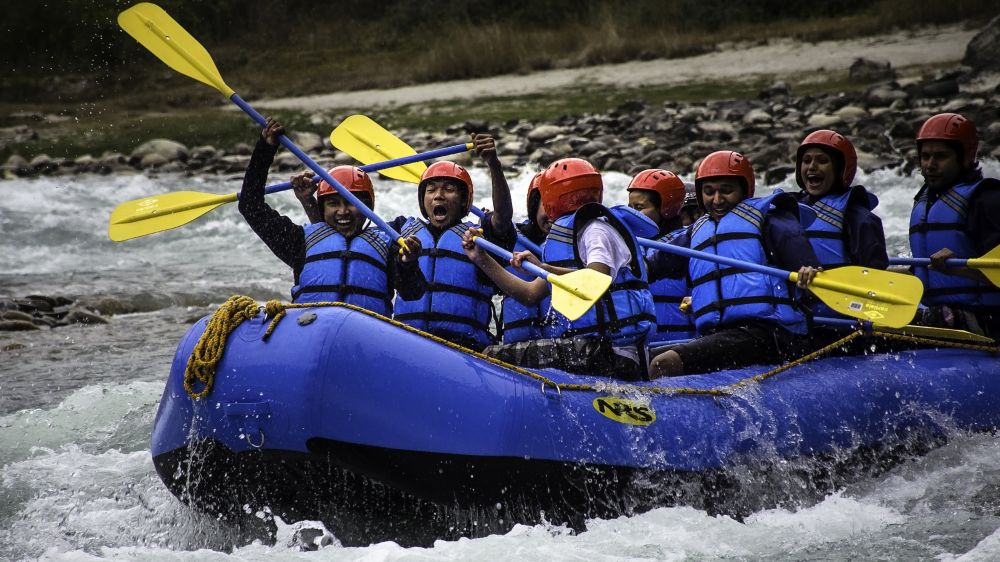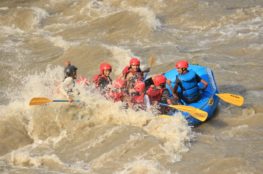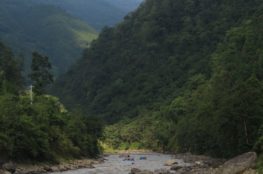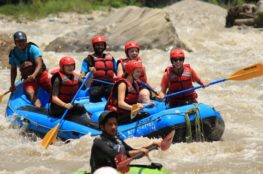Bheri River, rising from the high Himalayas, is one of the biggest rivers for fishing in Nepal and is one of the easiest rivers for water adventures. This river being situated in the far western part of the country is said to have many mysteries that need to be explored. The 140 kilometers long river gets bigger at Ramnaghat as two tributaries(Sani Bheri and Thuli Bheri) combine with the river at that point. The put in point of this rafting trip is Devisthal and the take out point is Chisapani.
Bheri is said to be easier for rafting as the rapids of class 3 and 4 in the river aren’t as violent compared to other rafting rivers. A rafting trip to Bheri will give you an opportunity to explore the remote areas of the region, some unspoiled cultures of the locals and an enthralling view of the natural sceneries of Nepal and sometimes the wild animals in their natural habitat along with spending warm and cozy nights at the white sandy beaches along the river. This rafting expedition is a great excuse to get away from the polluted city for a week.
We will drive to Devisthal from Kathmandu which will take around 14 hours and spend the night there.
Day 02:
Our river journey will officially begin on the second day. We will get into our rafts at Devisthal and being through the first rapid George one(3+) class head towards Pabitra Bazzar (the largest town in Mehelkuna VDC of Bheri Zone).
Day 03:
On the 3rd day of our journey, we will raft to Bheripool from Pabitra Bazzar.
Day 04:
From Bheripool we raft to Ranighat. Rafting on this path of big water flowing from the mountain ranges of Dolpo region will become very exciting. We will set camps on a sandy beach at Ranighat for the night.
Day 05:
From Ranighat we will head towards the Confluence.
Day 06:
From the Confluence we will head to Chisapani, the take out point, and you can either go back to Kathmandu or drive to Bardiya National Park to experience the magnificient wilderness of Nepal.
- Professionally trained and certified river guides.
- Professionally trained and certified safety kayakers.
- Quality rafting and kayaking equipment, including boats, kayaks, helmets, paddles, life jackets, dry bags and pelican boxes.
- Accommodation in a camp and all necessary facilities including personal tents, individual mattress and sleeping bag, toilet tents etc.
- All meals while on the river – breakfast, lunch and dinner.
- Two way transportation – buses, 4WDs.
- River Permits.
- Visas, flights, other taxes etc.
- Personal items like toiletries, clothing, camera etc.
- Alcohol and other packed food.
- Insurance policy: paddlers need to have their own insurance since we only provide insurance to our crew.
- Tips for guides – we pay our guides and porters fairly but if you want you can tip them personally.




